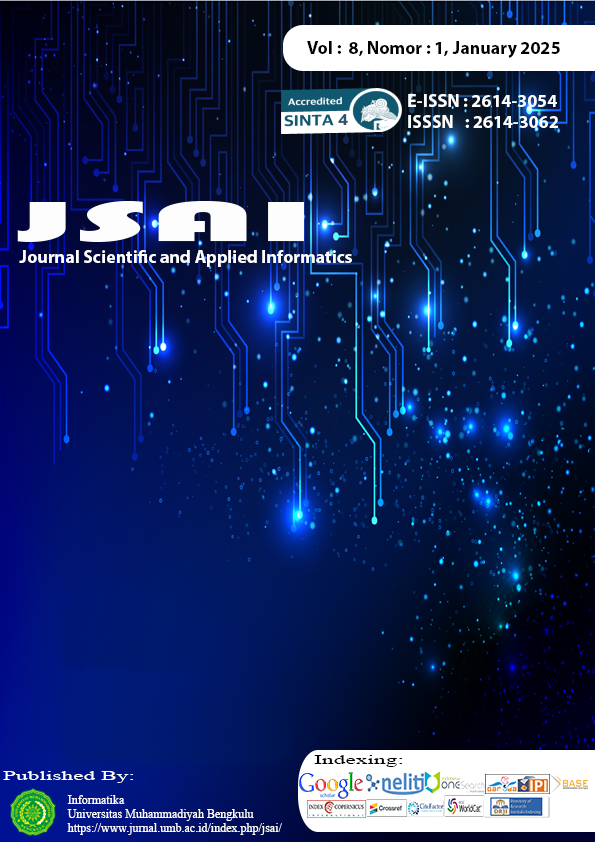E-Commerce Marketing Strategy Optimization Through Machine Learning-Based Conversion Prediction
DOI:
https://doi.org/10.36085/jsai.v8i1.7553Abstract
The research identifies the problem of enhancing e-commerce sales conversion through TikTok amidst intense content competition. The objective of the study is to develop a machine learning-based marketing strategy to analyze user behavior and categorize them into Non-Purchasers and Purchasers.The method employed includes clustering using K-Means, K-Medoids, and Fuzzy C-Means algorithms, with K-Means demonstrating the best performance, achieving the highest Silhouette Coefficient (0.1857) and the lowest Davies-Bouldin Index (1.9991). Following clustering, classification is performed using Naïve Bayes, Decision Tree, and Random Forest algorithms. The Random Forest model yields the best results with an accuracy of 0.9945, showcasing its effectiveness in predicting sales conversions.The conclusion of this study indicates that K-Means and Random Forest are the optimal methods for clustering and classification, respectively, in understanding user behavior on TikTok. These findings can assist e-commerce players in tailoring their marketing strategies, improving sales conversion rates, and enhancing advertising efficiency
Downloads
Published
Issue
Section
License
Copyright (c) 2025 Agustina Heryati, Terttiaavini Terttiaavini, Septa Cahyani, K.Ghazali, Harsi Romli, Iski Zaliman

This work is licensed under a Creative Commons Attribution-NonCommercial-NoDerivatives 4.0 International License.







